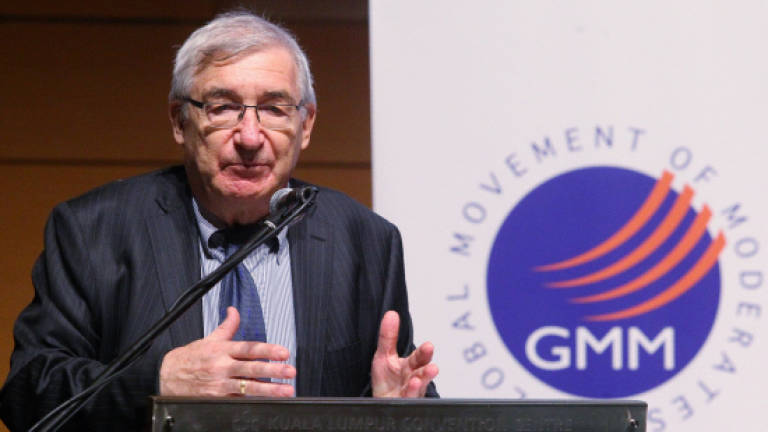Understanding the IS threat

PETALING JAYA: With the growing threat of the Islamic State of Iraq and Syria (IS), theSun speaks to Prof. Dr. Alex P. Schmid, research fellow at the Netherlands-based International Centre for Counter-Terrorism.
Schmid was in Kuala Lumpur to give a lecture on countering the IS threat.
Q: In your experience over the years, what makes the self-styled IS stand out from all the other terrorist entities?
A: Well they have a better narrative than al-Qaeda. They created a fact with the declaration of the caliphate. And contrary to most terrorist groups, they actually maintain and hold territory. Usually terrorists only occupy your mind. These, like guerillas, occupy land. There are others like al-Shabab in Somalia, Boko Haram in north Nigeria, the Taliban, to name a few. But most terrorist groups never got as far as IS has.
Q: It appears as if IS intends to become a nation-state, albeit a rogue one.
A: It doesn't want to become a rogue state, it wants to become an Islamic state. And its ambitions are global.
Q: Perlis Mufti Datuk Dr. Mohd Asri Zainal Abidin had observed that religion is not the main motivation. Rather, IS takes advantage of the social and cultural problems that many Muslims face worldwide, such as alienation from society, bleak economic future, or war.
A: It is true that some of those people who join IS have only a dim idea of what Islam is about. But they are searching for a meaning in life. And that can be offered by religion, nationalism, or other so-called good causes. But at the moment this religious wave is the dominant one.
Q: How far can it be argued that the creation of IS or the spread of Islamic fundamentalism throughout the Middle East and the world can be traced to the actions of the former colonial powers and contemporary Western imperialism?
A: You can blame colonialism for many things, but after a number of years the persuasiveness of that argument wears thin. Bear in mind the Western powers were not the only ones who created empires. The Ottomans, who were driven by other non-Western thinking, did too. Of course you have neo-colonialism, imperialism, American policies that were driven by oil in the Middle East; all these play a role. Yet the main reason is bad governance in the region itself.
Q: In the case of Malaysia, it is relatively free from problems earlier mentioned. We are in contrast a moderate and stable Muslim-majority nation. Nonetheless since February 2013, the authorities have arrested 111 people suspected of being connected to IS. 68 of those are Malaysian citizens. How can you explain this anomaly?
A: Look at it the other way around. All the Malaysian youth that have not joined, which is 99% and more. There is not a society that is completely immune. In each society there are subcultures that feel marginalised, individuals who feel alienated because of their family or their clan. If we talk about numbers, you can look at Central Asia where thousands joined IS, and Indonesia about 500. But Indonesia is a huge nation, the largest Muslim nation on Earth. So these are very small groups. Unless you are a police state you cannot hold them all back. Even some citizens of authoritarian nations have joined IS.